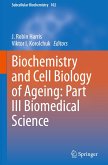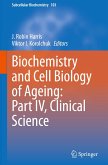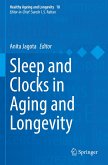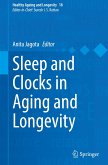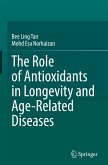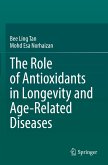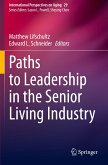This book provides a state-of-the-art overview of key areas of subcellular aging research in human cells.
The reader is introduced to the historical development and progress in biomedical aging research and learns, for example, about the role of microRNAs, circRNAs, mitochondria and extracellular vesicles in cellular senescence. The reader will also learn more about how gap junctions, the nuclear pore complex and the proteasome are affecting the ageing processes. In addition, novel therapeutic opportunities through modulation of cellular senescence are discussed.
The book follows on from Parts I and II of Biochemistry and Cell Biology of Ageing (Volumes 90 and 91 of the Subcellular Biochemistry book series) by covering interesting and significant biomedical ageing topics not included in the earlier volumes. Comprehensive and cutting-edge, this book is a valuable resource for experienced researchers and early career scientist alike, who are interested in learningmore about the fascinating and challenging question of why and how our cells age.
The reader is introduced to the historical development and progress in biomedical aging research and learns, for example, about the role of microRNAs, circRNAs, mitochondria and extracellular vesicles in cellular senescence. The reader will also learn more about how gap junctions, the nuclear pore complex and the proteasome are affecting the ageing processes. In addition, novel therapeutic opportunities through modulation of cellular senescence are discussed.
The book follows on from Parts I and II of Biochemistry and Cell Biology of Ageing (Volumes 90 and 91 of the Subcellular Biochemistry book series) by covering interesting and significant biomedical ageing topics not included in the earlier volumes. Comprehensive and cutting-edge, this book is a valuable resource for experienced researchers and early career scientist alike, who are interested in learningmore about the fascinating and challenging question of why and how our cells age.


